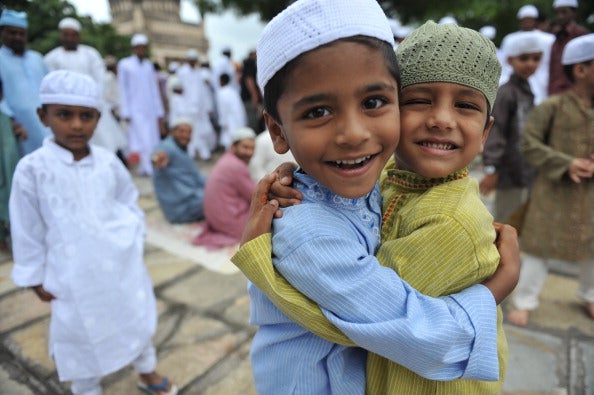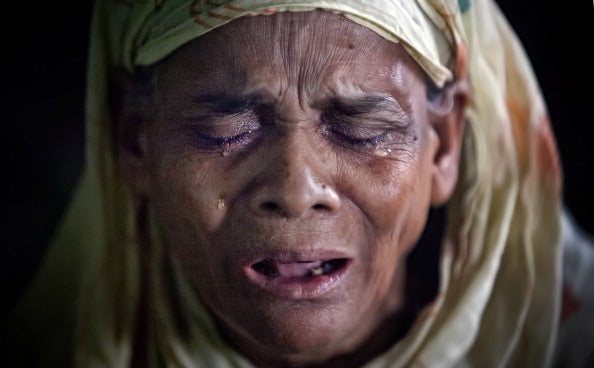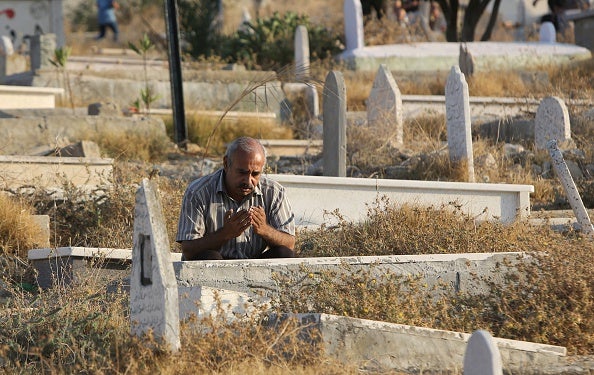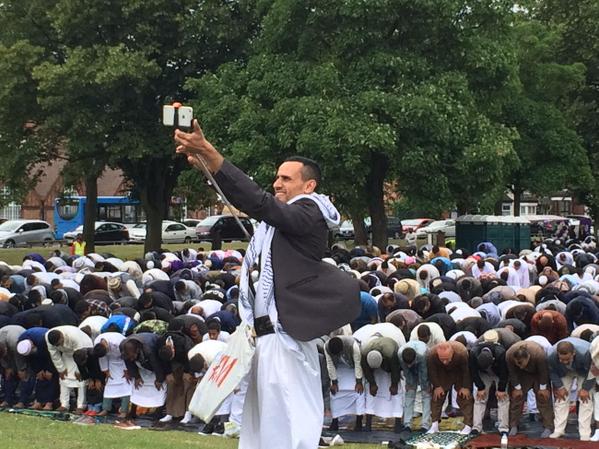Eid-ul-Fitr: Five things you probably didn't know about the festival that sees the end of Ramadan for Muslims
You may be surprised to hear about just how much more Eid-ul-Fitr is about away from food

Your support helps us to tell the story
From reproductive rights to climate change to Big Tech, The Independent is on the ground when the story is developing. Whether it's investigating the financials of Elon Musk's pro-Trump PAC or producing our latest documentary, 'The A Word', which shines a light on the American women fighting for reproductive rights, we know how important it is to parse out the facts from the messaging.
At such a critical moment in US history, we need reporters on the ground. Your donation allows us to keep sending journalists to speak to both sides of the story.
The Independent is trusted by Americans across the entire political spectrum. And unlike many other quality news outlets, we choose not to lock Americans out of our reporting and analysis with paywalls. We believe quality journalism should be available to everyone, paid for by those who can afford it.
Your support makes all the difference.Beginning at the start of the month of Shawwal – the tenth month of the lunar Islamic calendar – Eid-ul-Fitr signals the end of the Holy Month of Ramadan and can, typically, last for between one to three days.
While most people think it’s a day when Muslims feast to the point of passing out, here are six things you probably didn’t known about Eid-ul-Fitr – until now:
It’s not all about food:
The religious holiday, ultimately, encourages Muslims to forgive and forget any differences, or hostilities, with others which may have occurred during the year.
While food is important on Eid, there are also religious obligations connected to the festival which see Muslims give thanks to Allah for giving them the strength – or taqat – to get through the month of Ramadan. As well as forgiveness, self-reflection, and undertaking peaceful contemplation, Muslims are also required to give to charity by way of Fitrana – an obligatory charity which is to be paid prior to Eid-ul Fitr.
In a statement, even President Obama and First Lady Michelle urged the global Muslim community to bear in mind that “Ramadan is a time to reflect spiritually, build communally, and aid those in need.”
The Eid day starts early when Muslims, first and foremost, gather at mosques, plazas or outdoor squares to perform prayers in new clothes which have been given to them. Immediately after, they wish each other a peaceful and prosperous Eid Mubarak before sharing, with family and friends, the food they have prepared.

It’s also about remembering loved-ones who have passed away:
Muslims traditionally visit the graves of their loved-ones on Eid after they have been to prayers.
Families visit the graves of their family members, clean the gravesite and offer D’uaa – or prayers – to Allah for forgiveness and also pray that their loved-one’s souls find peace.
According to scholars, Muslims visit family graves on Eid to honour the tradition as upheld by the Prophet Muhammad who was said to have visited his mother’s grave where he was moved to tears as he prayed for forgiveness for her sins, all the while bearing in mind that death should remain a humbling experience for all.

Eid-ul-Fitr signals the beginning of the new month of Shawwal – named after when camels mate:
Shawwal means ‘lifting’, ‘raising’, or ‘hoisting’ because of the time of year when, some scholars say, the male camel lifts his tail to attract and seduce a female.
Other scholars have argued Shawwal was named after the time of year a female camel would ‘carry’ her foetus while some have said it’s actually the time when Arabs would hunt and travel throughout the lands after being ‘lifted’ onto a horse or camel’s back.
Either way, Shawwal is the month of ‘rising-up’ after a month of fasting.

A Conservative MP called for Eid to be made a British public holiday:
Last year, Conservative MP Bob Blackman championed an e-petition on the Government’s website which said that Muslims (as well as Hindus) should have “the most important days in their faiths recognised in law.”
The petition was by signed by over 120,000 people – but was rejected after the Government expressed concern over the cost to the economy, saying it would be “considerable” if such a measure were to be put into place.
Mr Blackman retaliated: “I can't believe any government would every dare to decide to cancel Christmas.”

London will be hosting a huge Eid celebration in Trafalgar Square:
Hosted by the Mayor of London, Trafalgar Square will play host to a giant, multi-sensory Eid-ul-Fitr celebration on Saturday 25 July.
All are invited to attend the free event which will include souks, market stalls, music performances, celebrity guest appearances – and food from Malaysia, Turkey, South Asia, Egypt, Lebanon, Indonesia and the Arab world (to name but a few).
For those after something more traditional, Qu’ran recitations and the Adhan – or call-to-prayer – will be taking place as well as henna-painting and calligraphy.
Join our commenting forum
Join thought-provoking conversations, follow other Independent readers and see their replies
0Comments